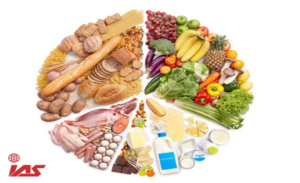Introduction: The Significance of Kosher Certification
In the world of food production, the term “kosher” extends far beyond dietary laws; it embodies a commitment to quality, authenticity, and consumer trust. Kosher certification is essential for food producers aiming to cater to the Jewish community and those who choose kosher products for reasons of health, ethics, or preference. This guide explores the nuances of kosher certification, its importance, the certification process, and its impact on the food industry.
What Does Kosher Mean?
Kosher refers to food that complies with Jewish dietary laws, known as kashrut. These laws dictate what foods are permissible and how they should be prepared. The concept of kosher encompasses various aspects:
- Permissible Animals: Only certain animals are considered kosher. For example, mammals must have split hooves and chew their cud (e.g., cows, sheep) while fish must have fins and scales.
- Prohibition of Mixing: The laws prohibit mixing meat and dairy products. This separation extends to cooking utensils and serving dishes, requiring strict adherence in both food preparation and service.
- Preparation Standards: Food must be prepared under the supervision of a qualified authority to ensure compliance with kosher laws, including the use of kosher-certified ingredients.
The Importance of Kosher Certification
- Expanding Market Reach
Kosher certification opens doors for food producers to tap into a significant and growing market. The Jewish community worldwide adheres to kosher dietary laws, but kosher products also appeal to non-Jewish consumers seeking high-quality, ethically produced food. Many people associate kosher certification with superior quality and safety standards, making these products appealing to a broader audience.
- Ensuring Quality and Safety
Kosher certification involves rigorous standards and practices that enhance food quality and safety. Certified products undergo strict inspections and are produced in facilities that follow health and safety regulations. This oversight helps ensure that consumers receive safe, high-quality products free from harmful contaminants.
- Building Trust with Consumers
In an era where consumers are increasingly concerned about the sourcing and integrity of their food, kosher certification builds trust. It provides assurance that products have been vetted and comply with recognized standards, reassuring consumers about the authenticity and quality of what they are purchasing.
- Compliance with Religious Practices
For observant Jews, kosher certification is not just a preference but a necessity. The certification ensures that the food they consume aligns with their religious beliefs and practices. This commitment to kashrut fosters a sense of community and identity among Jewish consumers.
The Kosher Certification Process
- Choosing a Certification Agency
The first step in obtaining kosher certification is selecting a reputable certification agency. Various organizations oversee kosher certification, each with its own set of standards and guidelines. It’s essential to choose a certifying body that aligns with the company’s values and the specific market it intends to serve.
- Application and Initial Assessment
Once a certification agency is chosen, the food producer submits an application. This application typically includes details about the company’s operations, ingredients, and production processes. An initial assessment may be conducted to evaluate whether the facility meets the necessary requirements for kosher production.
- Ingredient Review
The certification agency will review all ingredients used in the food production process to ensure they are kosher-compliant. This includes examining the sourcing and handling of ingredients to verify that they meet kosher standards. Any non-kosher ingredients must be replaced with certified kosher alternatives.
- Facility Inspection
The certification agency will conduct an on-site inspection of the production facility. This inspection assesses the equipment, storage areas, and food preparation processes to ensure they align with kosher practices. The agency may require modifications to ensure compliance, such as segregating meat and dairy preparation areas.
- Staff Training
Training staff members in kosher practices is essential for maintaining compliance. The certification agency may provide training sessions to educate employees on kashrut laws, proper food handling techniques, and the importance of maintaining kosher standards throughout the production process.
- Issuance of Certification
Once the food producer successfully meets all requirements, the certification agency will issue a kosher certification. This certificate typically includes information about the specific products covered, the certifying agency, and any ongoing compliance requirements.
- Ongoing Compliance and Renewals
Kosher certification is not a one-time event; it requires ongoing compliance. Regular inspections and audits are conducted to ensure that the facility continues to adhere to kosher standards. Certification must be renewed periodically, and any changes in production processes or ingredients may necessitate re-evaluation.
Types of Kosher Certifications
Kosher certification can vary widely based on the certifying agency and the specific standards they uphold. Common categories of kosher certification include:
- Orthodox Certification
Orthodox certification is the most widely recognized and respected form of kosher certification. Agencies that provide this certification adhere to strict interpretations of kashrut and often require a higher level of supervision and inspection.
- National Kosher Symbols
Different countries may have their own kosher symbols and certifications. For instance, the United States has symbols like OU (Orthodox Union), OK (Organized Kashrut), and Star-K, each representing different certifying agencies.
- Vegan and Vegetarian Certifications
Some kosher certifications also address dietary preferences beyond traditional kashrut, such as vegan or vegetarian certifications. These certifications ensure that no animal products are used, appealing to consumers with specific dietary needs.
Challenges in Obtaining Kosher Certification
While the benefits of kosher certification are substantial, food producers may encounter challenges during the certification process. Understanding these challenges can help companies prepare effectively.
- Ingredient Sourcing
Finding kosher-certified ingredients can be a challenge, particularly for specialty products. Producers may need to develop relationships with suppliers who can provide certified ingredients, which may involve additional costs and logistical considerations.
- Cost of Certification
Obtaining kosher certification can involve significant costs, including fees for the certifying agency, modifications to production processes, and ongoing compliance expenses. Smaller producers may find these costs prohibitive, requiring careful financial planning.
- Staff Training and Compliance
Training staff on kosher practices is essential but can be time-consuming and resource-intensive. Ensuring that all employees understand and adhere to kashrut laws is critical for maintaining certification, requiring ongoing commitment and supervision.
The Impact of Kosher Certification on the Food Industry
- Increasing Demand for Kosher Products
The demand for kosher products is rising, driven by both the Jewish community and a growing number of non-Jewish consumers. This trend has led many food producers to seek kosher certification as a way to expand their market reach and meet consumer preferences.
- Enhancing Food Safety Standards
The rigorous standards associated with kosher certification contribute to overall food safety in the industry. Producers who implement kosher practices often see improvements in hygiene, quality control, and product consistency, benefiting consumers and businesses alike.
- Promoting Ethical Practices
Kosher certification often aligns with ethical considerations in food production, emphasizing humane treatment of animals, environmentally sustainable practices, and transparency in sourcing. This alignment attracts socially conscious consumers who prioritize ethical consumption.
Conclusion: The Value of Kosher Certification
Kosher certification is a powerful tool for food producers seeking to ensure quality, authenticity, and compliance with dietary laws. By investing in kosher certification, businesses can expand their market reach, enhance consumer trust, and demonstrate a commitment to safety and ethical practices.
As the demand for kosher products continues to grow, producers who prioritize kosher certification will be well-positioned to thrive in a competitive landscape. With its rigorous standards and commitment to quality, kosher certification not only benefits Jewish consumers but also appeals to a broader audience seeking high-quality food options.
Ultimately, kosher certification represents a commitment to excellence in food production, aligning the interests of producers with the values and preferences of consumers. By embracing kosher practices, food producers can unlock new opportunities and elevate their offerings in a dynamic and evolving market.


